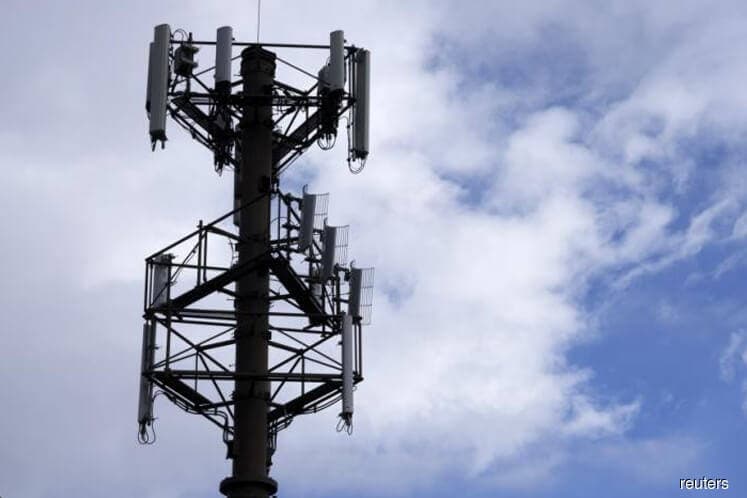
This article first appeared in The Edge Financial Daily on October 13, 2017
KUALA LUMPUR: The country’s big three mobile operators could see a 3%-4% impact on their net profit for the financial year 2019 (FY19) if they are successful in the upcoming 700MHz spectrum allocation tender, says CIMB Research.
If Maxis Bhd, Celcom Axiata Bhd (a unit of Axiata Group Bhd) and DiGi.Com Bhd win, this would be equivalent to a manageable 3.4%, 2.9% and 4.2% impact on their FY19 forecast net profit, respectively, said the research house.
“In addition, the extra cost could be offset by possibly better capital expenditure (capex) efficiency, due to the additional capacity and coverage from the 700MHz spectrum,” said CIMB analyst Foong Choong Chen in a note yesterday.
On Wednesday, the Malaysian Communications and Multimedia Commission (MCMC) said it would tender out 2x400MHz of the 700MHz spectrum.
The upfront price for a 2x5MHz block was set at RM215.5 million (with three other instalment options), while the annual fee is RM18.5 million. The 15-year spectrum assignment will start on Jan 1, 2019.
The MCMC said the upfront price for each 2x5MHz spectrum block will be RM215.54 million, based on a one lump-sum payment option, while the annual fee will be RM18.54 million during the 15-year validity period starting in January 2019.
The commission announced several payment options for the bidder with payment terms of up to 15 years which would raise the spectrum cost up to RM417.12 million from RM215.54 million, over five, 10 or 15 years of RM260.6 million, RM328.38 million or RM417.12 million, respectively.
“If we factor in the upfront payment, Maxis, Axiata, DiGi’s net debt or earnings before interest, taxes, depreciation and amortisation could rise marginally to 1.64 times,1.55 times and 0.75 times (from 1.55 times, 1.51 times and 0.60 times) by end-FY18F,” said Foong.
“Given that this is below two times (the ceiling set by most telcos), there should be no need for equity fundraising to pay for the 700MHz spectrum in our view,” he added.
Foong said even U Mobile would stand a better chance of being assigned the 700Mhz spectrum driven by the MCMC’s evaluation criteria such as operating track record, infrastructure sharing capacity and capability.
However, he noted that at this stage, there is still uncertainty over who the eventual winners are as the MCMC has not decided on the bandwidth size to be allocated to each winner and smaller players could still impress the MCMC with their preliminary business plans.
MIDF Amanah Investment Bank Bhd analyst Martin Foo Chuan Loong said assuming each bidder bids for one or two blocks of the frequency band, Maxis, DiGi, Celcom and YTL Communications Sdn Bhd have sufficient cash reserves to fund the bidding.
Foo believes U Mobile will have the financial support of its main shareholders. According to U Mobile’s website, the group’s main shareholders are ST Telemedia and U Telemedia. Tycoon Tan Sri Vincent Tan owns U Telemedia.
MIDF said that from the available payment options, the first option — one lump-sum payment — would be the most viable. However, it said there is a possibility that the bidders may also opt for the instalment term.
“This is in view of the annual maintenance fee and more importantly, the capex required to efficiently roll out the services on the 700MHz frequency band.
“Note that the mobile telecommunication service providers may balance between the allocation of the spectrum band and the capex required for the infrastructure.
“Nonetheless, we view that should DiGi bid and opt for a lump sum payment for two blocks of the 700MHz spectrum, it could affect its dividend payment ability. DiGi typically pays approximately 100% of its net earnings,” he said.
Maxis’s share price closed three sen or 0.51% higher at RM5.88 yesterday with a market capitalisation of RM46 billion. Axiata went four sen or 0.76% up to RM5.33, giving the group a market value of RM47.33 billion, while DiGi dropped four sen or 0.82% to RM4.84 with a market capitalisation of RM37.94 billion.